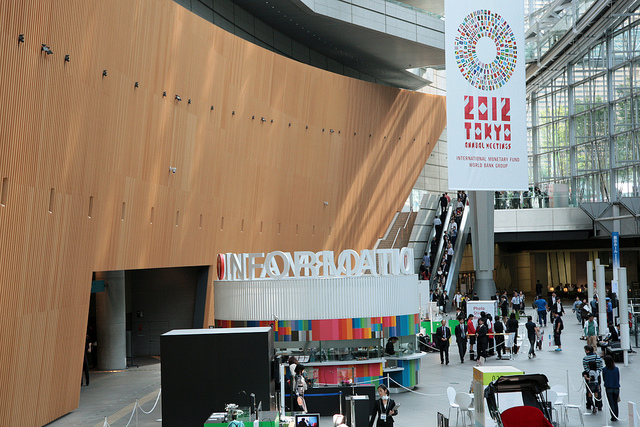
I had the privilege to listen to a panel in Athens with the Ambassadors of the three most important countries in East Asia: China, Du Qiwen; Japan, Hiroshi Toda and Korea, Shin Gil-sou. It was a talk organised by the Embassy of Japan in Greece and the Hellenic Foundation for European and Foreign Policy. The title of the Symposium was: “Prospect on Economic integration in East Asia – Implications from and to Europe in the time of debt crisis”.
The first part was devoted to arguments on regional operation, the real economy and production networks, as well as the characteristics of the economic integration in East Asia. The second part was about the European Union, the debt crisis and the necessity of political leadership addressing financial reform to overcome the crisis. Then views were exchanged on East Asian economy, definitions of East Asia, the prospects of the Chinese economy, and the implication of the economic integration in East Asia for Europe etc.
Interestingly, all participants agreed that political will is the most important factor for crisis management and further economic integration, both in Europe and in East Asia. While I was writing this, it was already known that the German Chancellor Angela Merkel is to visit Athens tomorrow (Oct. 9). Besides the obvious feelings of insecurity and the patriotic symbolisms the visit will produce for all Greeks and particularly Athens inhabitants, I could not but consider the obvious: a political solution is on the way. I am not sure whether it will prove to be beneficial towards “further economic integration” or it is a way the German leader to appear bailing out Greeks on her own; again, in political terms.
The stalemate with the troika has to do with trust. Troika head representatives have been called many things in this country, but being inconsistent is not one of them. Since the beginning of negotiations in 2010, troika people have been steadily arguing for two parallel courses of action: cutting expenses and forwarding structural changes (to liberalise the market, invite competition and boost growth). Cuts did occur, reforms never happened. Either due to political cost or unionist phobia, structural changes have never been properly dealt with, remaining suppressed by partisan interests and clientelistic concerns. Hence today’s impasse.
Real growth (not the one driven by consumption and loans), economic integration, daring steps forward towards the unification of countries that share common interests, truly need political courage. Politicians need to be brave and think ahead; what they also need is the support of their peoples by regaining their trust.
This is where politics draw its power, people. Either in East Asia or in Europe, political solutions remain political when people are willing to play along. If they do not agree with politicians’ moves, then the latter are on their own, alienating themselves from society, thus failing to serve the [perception of] common goal.
Greek police and other security forces are bracing for Angela Merkel’s visit tomorrow. Demonstrations, sit-ins and heroisms in front of the German embassy in Athens are already scheduled, perhaps accompanied by the occasional riot activity. This is people’s way to express their outrage but hardly constitutes “solution” material. Even if the package is agreed, the symbolism for the government will be hard to read.
All participants in Japanese Embassy’s symposium agreed that political solutions are the way to move forward. I would add that political solutions should be decided by people themselves. If more integration is the way to go (in Europe and East Asia) then people (instead of politicians) should be asked whether they are willing to turn their countries into peripheral geographical entities of a centrally managed bureaucracy.
Finally, although Europe is much older in the integration game, I would say that the chances for real progress in the integration field lie more on the East Asia side. Both philosophically and technologically, they have all necessary elements to put forward a whole new paradigm of economic integration, based on 21st century politics; namely based on elements of fairness, honest cooperation, advanced sense of social responsibility. In order something like this to succeed, it should be grassroots; and on the web. Then mainstream politics could follow, framing the drive with ‘political solutions’. In the social networks era, cross-country political initiatives need to start from the base.
On-going online democracy could prove much more powerful than any old fashioned political initiative; Europe needs to understand this as well.
Dr. Demetris Kamaras is the Editor of Alyunaniya.com


